Key takeaways:
- DNA testing services vary in focus, providing insights into ancestry, health risks, and familial connections.
- Understanding the science behind different tests (autosomal, Y-DNA, mitochondrial DNA) is crucial for selecting the right service based on individual interests.
- The reputation of the DNA testing provider, supported by independent certifications and personal referrals, is critical for ensuring a satisfying experience.
- Defining personal goals and needs before choosing a testing service can significantly enhance the overall experience and outcomes of the DNA exploration journey.
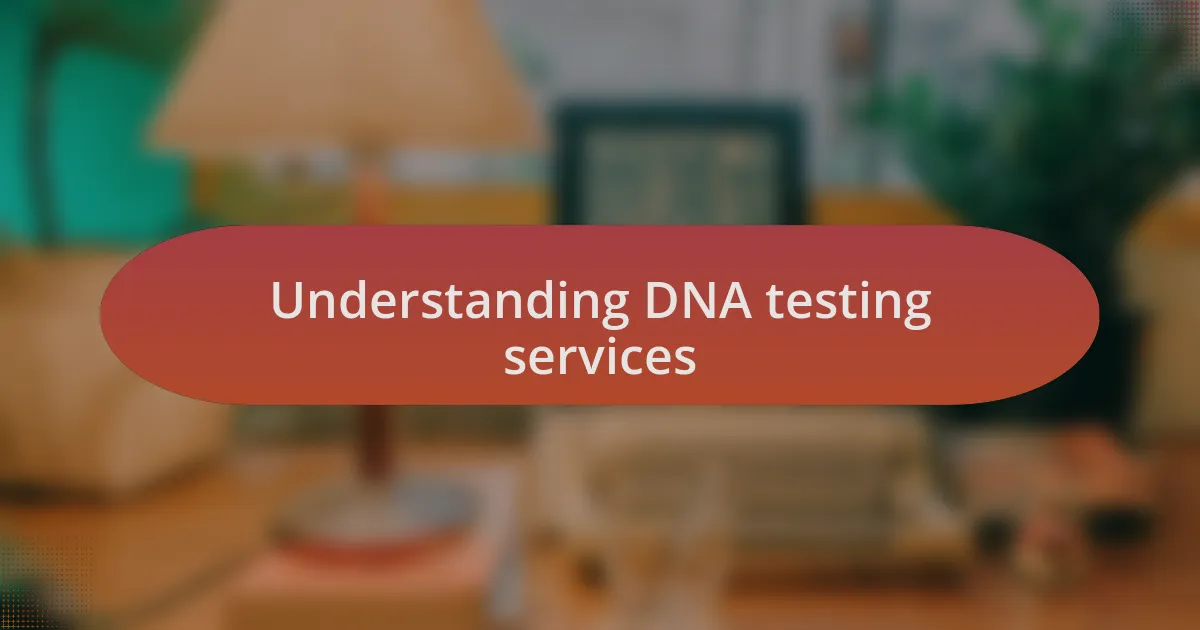
Understanding DNA testing services
When I first learned about DNA testing services, I was a bit overwhelmed by the options available. It’s like stepping into a vast library—it’s hard to know where to start. Each service offers different insights, from ancestry information to health risks, and understanding these distinctions is crucial to making the right choice for your genealogical journey.
As I delved deeper into various services, I found myself pondering: what do I truly want to uncover about my heritage? This question led me to appreciate that DNA testing isn’t just about gaining knowledge; it’s about connecting with the past and understanding the essence of who I am. It opened my eyes to the fascinating stories hidden in my genetic makeup, reminding me of the old family tales my grandmother used to tell.
Navigating these testing options requires an understanding of the science behind them. For instance, autosomal testing can trace your lineage through the last several generations, while Y-DNA or mitochondrial DNA tests delve deeper into paternal or maternal lines, respectively. These nuances can significantly influence your family tree exploration, making it essential to choose wisely based on what sparks your curiosity.
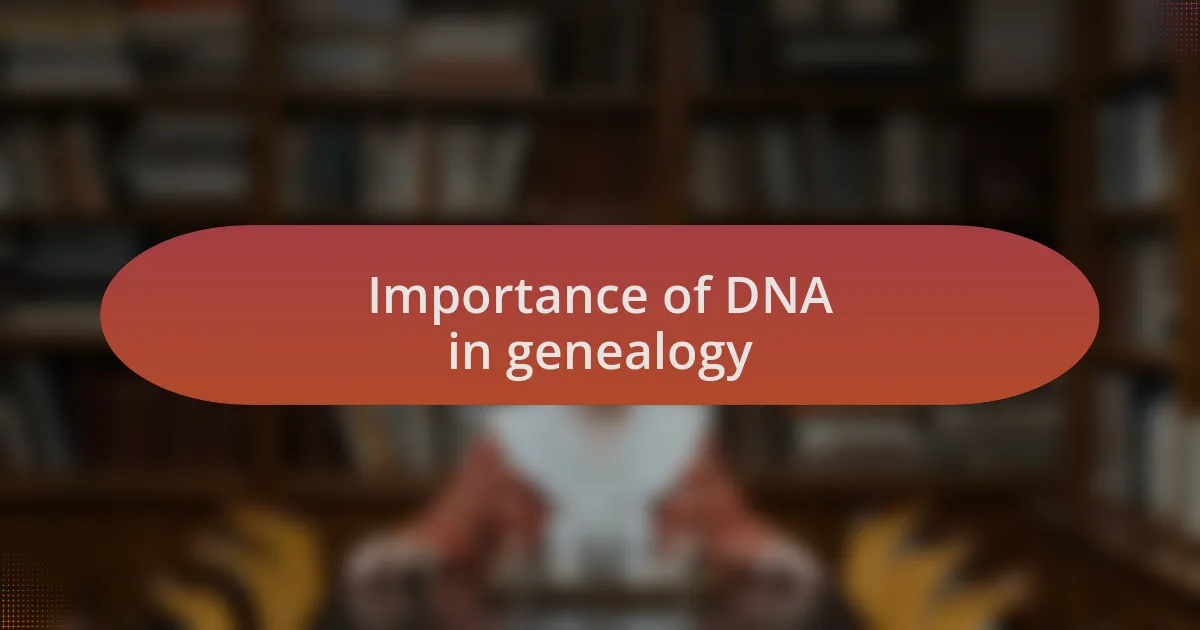
Importance of DNA in genealogy
DNA plays a pivotal role in genealogy by providing concrete evidence of one’s ancestry. I remember the moment I received my results—they revealed connections I never knew existed. This tangible link between my present and my heritage made the whole journey worthwhile, showing me that DNA isn’t just science; it’s a bridge to my ancestors.
Understanding the importance of DNA testing in genealogy also means recognizing how it can confirm or challenge family narratives. Have you ever wondered about the stories passed down through generations? I found that some of my family tales were surprisingly accurate, while others were completely redefined by new information. This process enriched my understanding and appreciation of my family’s history in ways that I never anticipated.
Moreover, DNA testing can uncover unexpected relatives, leading to new connections and insights. I was surprised to find distant cousins I never knew about, opening doors to shared experiences and histories. This aspect highlights how DNA can transform our perspective on family ties—not just to ancestors but to each other. How can you measure the value of finding a new family member who shares your DNA? For me, it felt like gaining a piece of my identity that had been missing for years.

Key factors to consider
When selecting a DNA testing service, it’s essential to consider the type of testing offered. Some companies specialize in autosomal DNA, which provides a broad view of your ancestry, while others focus on Y-DNA or mitochondrial DNA, each revealing different aspects of your lineage. I remember when I chose a service based on their comprehensive autosomal test; I was eager to see how many ancestors I could connect with across a wide array of branches.
Another crucial factor is the privacy policy of the testing company. Ensuring that your genetic data is handled responsibly can’t be overstated. I once read about a family who regretted their choice because they were uncomfortable with how their results were shared with third parties. Have you thought about how much of your personal information you’re willing to share? It’s a conversation worth having; your DNA is not just a set of results, it’s a part of you.
Finally, consider the customer support and resources available after your test. I found it invaluable to have access to experienced genealogists who could help me interpret my results and guide me in further research. Can you imagine receiving your results and feeling completely lost? The right support can turn that confusion into clarity, helping you make sense of your newfound ancestry.
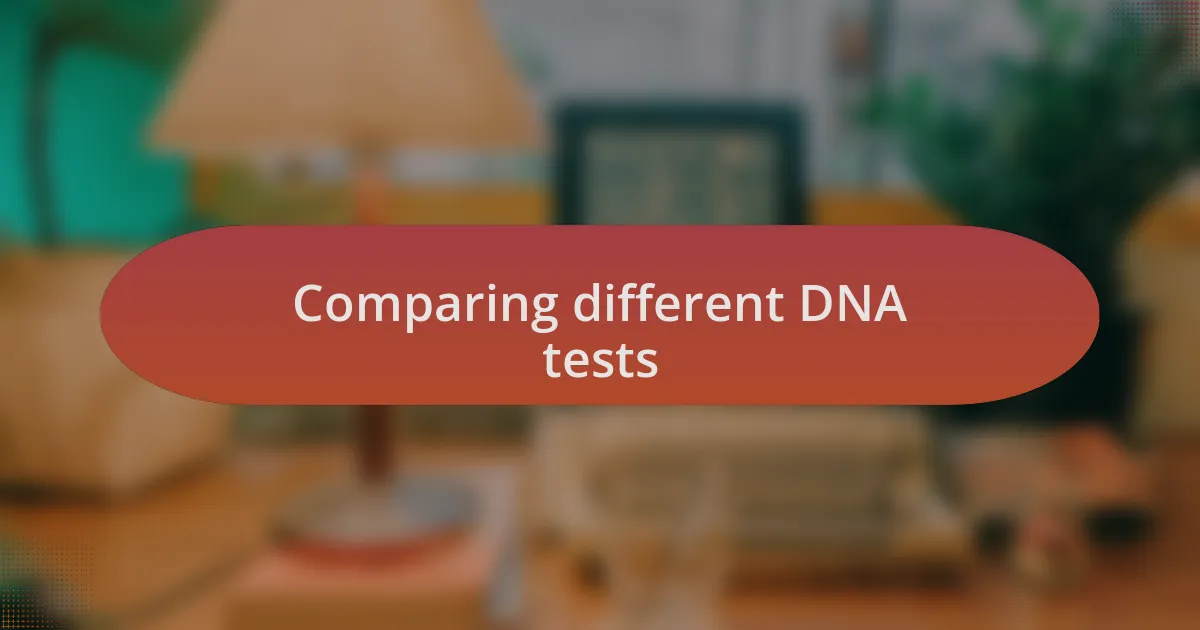
Comparing different DNA tests
When comparing different DNA tests, I think it’s important to weigh the depth of information each service offers. For instance, when I opted for a test that provided both autosomal and Y-DNA results, the additional layer of detail about my direct paternal line was invaluable. It made me wonder how many more connections I could trace back that would have remained hidden with a more generic package.
Another consideration is the test’s geographical coverage. Some services may excel in certain regions over others. I recall being surprised when I learned that the testing company I chose had a particularly robust database for Eastern European ancestry, which is essential for anyone with roots in that region. Have you looked into how well your ancestry could be explored by the service you’re considering?
Lastly, don’t overlook the community and educational resources associated with each test. I found myself participating in online forums and webinars hosted by the testing service, which really deepened my understanding of genetic genealogy. Imagine having a network of enthusiasts and experts at your fingertips, guiding you through the intricacies of your genetic findings—what a powerful tool that can be for any budding genealogist!
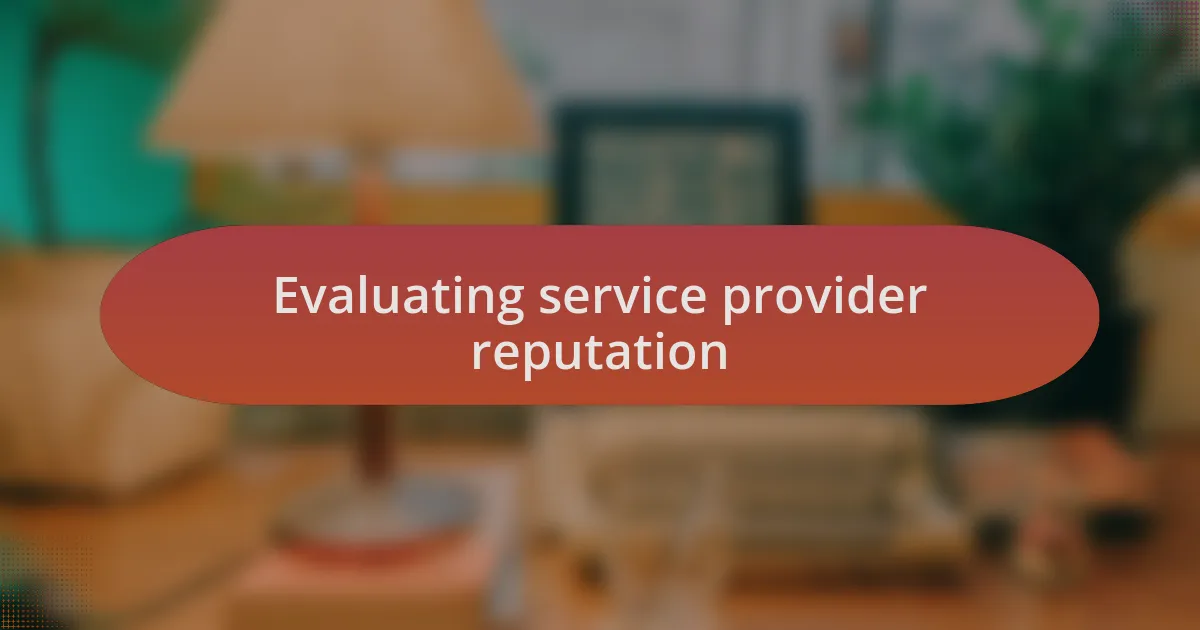
Evaluating service provider reputation
When it comes to selecting a DNA testing service, the reputation of the provider is critical. I once learned this the hard way when I chose a service based solely on a flashy advertisement. After a series of frustrating customer service encounters, I realized that a good reputation can save you from unnecessary headaches. Have you ever relied on user reviews or community feedback to guide your decision-making?
One effective way to gauge a company’s reputation is to look for independent certifications or endorsements. I found that services accredited by recognized organizations offered an added layer of trustworthiness. It gave me peace of mind, knowing that my results were in good hands. How much do these credentials matter to you when evaluating a provider’s credibility?
Finally, don’t underestimate the power of word-of-mouth recommendations. I remember discussing my options with friends and family who had previous experiences with various testing services. Their insights not only broadened my perspective but often pointed me toward lesser-known providers with stellar reputations. Have you tapped into your own personal network for advice?
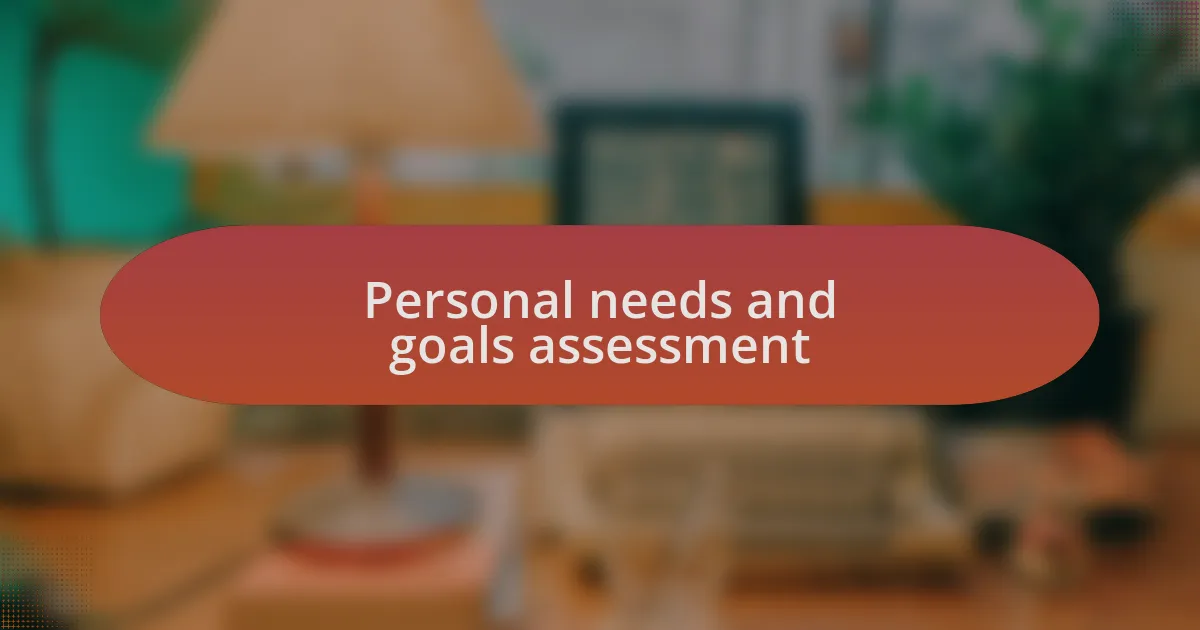
Personal needs and goals assessment
When I began exploring DNA testing services, I took a step back to reflect on my personal needs and goals. For me, understanding my family history was paramount, but I also wanted clarity on health-related information. Have you thought about what you hope to discover? Defining your aims upfront can shape your entire experience.
It’s crucial to consider what specific information you seek from the test. For instance, I was particularly interested in ancestry insights that could connect me to relatives I never knew existed. This focus helped me narrow down providers that offered comprehensive genealogical data. Are you leaning more towards ancestry, health insights, or both? Knowing your priorities can guide you toward the best choice.
Another aspect I found helpful was identifying how I would use the results. When I received my DNA report, it opened discussions with family members about our shared heritage. That sparked a deeper interest and curiosity in our lineage. How do you envision using your results? Whether it’s to reconnect with relatives or to learn more about your health risks, clarifying your intentions can significantly enhance your journey.